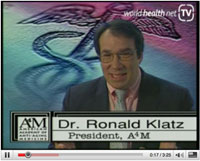
 |
|
|
HGH - The average person thinks of the damage of aging as an inevitable process of wear and tear. However, if wear and tear were the primary cause of aging in humans, a 60 year-old should have only twice the signs of aging as a 30 year-old. Why do most 30-year-olds show few effects of aging, while the effects of aging are so obvious in a 60 year-old person? If wear and tear were the major cause of aging, a 90-year-old person would only have 3 times as much aging damage as a 30-year-old. At the age of 30, people have spent most of their lives with fairly high levels of human growth hormone (HGH). HGH is responsible for growth during childhood -- and for the repair and regeneration of human tissue throughout our lives. By the time we reach the age of 30, our HGH levels are only about 20 percent of their peak levels during childhood, and after the age of 30, they continue to decline at about 14 percent per decade, and often much more. By the time most of us are 30 years old, our bodies no longer produce enough HGH to repair all of the damage that is occurring in our bodies. As our HGH levels continue to decline, the damage that we call aging continues to accelerate. The decline in HGH is not the only cause of the manifestations of aging. Even if our HGH levels remained at the level of a 25 year-old, we would continue to experience the effects of aging, but those effects would be greatly reduced until we reached a very advanced age. HGH does not affect the root cause of aging, as measured by maximum lifespan, but it can certainly affect many of the manifestations of aging. By increasing the levels of HGH in our bodies, we can slow, or even reverse, many of the manifestations of aging. It must be done carefully, though, and under medical supervision. Ideally, this HGH replacement should begin at about the age of 30 years, but HGH replacement can be beneficial at any age above 30. In fact, for older people, HGH therapy can reverse the manifestations of aging by 5 to 15 years or more. There is no other single therapy currently available that can have the impact on the aging body that HGH can have. What HGH therapy can do:
How does HGH get produced naturally: HGH is produced by the pituitary gland. The ability of the pituitary gland to produce HGH declines very little with aging in most people. The decline with aging occurs one step back from the actual secretion of HGH. There are at least 3 substances which control HGH secretion:
|
HGH ANTI-AGING BENEFITS Reduce stress and anxiety Enhance cardiac output Enhance sexual performance Increase lean muscle Lower blood pressure Remove wrinkles and cellulite Improve memory and mood Improve metabolism Cholesterol HDL/LDL balance HOW DOES HGH WORK?
|
LISTEN TO THE EXPERTS
|





